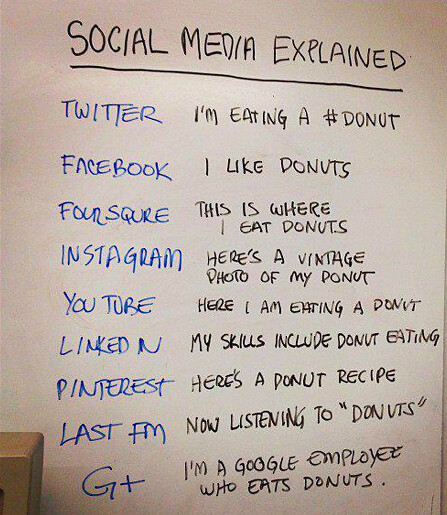Social media has, in some ways, made the Internet itself ironic.
What we know as the Web began as the ARPANET, developed to let Advanced Research Projects Agency scientists share information with one another to advance their researches. It devolved into something much less edifying as it expanded. Today, online courses and encyclopedias and other resources may combine to provide great opportunities for enlightenment, advancement, and fulfillment, but the various social media platforms seem to be strongholds for the ever more banal and degenerate.

(Image: “Social Media Explained (with Donuts),” by Chris Lott, on Flickr under Creative Commons.)
On social media, the irreligious can register expert opinions on religion and faith. People who never served a day in uniform or studied a fraction of military history, war, or conflict can share their supposed expertise on strategy, tactics, and military matters. Provincials who have never ventured beyond a comfortable distance from their birthplaces can claim authoritative knowledge on international affairs, those who have never run businesses or managed sums of money can pose as experts on economics, people who have never calibrated an instrument or written a computer model or conducted a designed experiment can proclaim scientific veracity, etc., etc. Add in striking graphics and a healthy dose of vulgarity, and social media enables the uninformed to substitute opinion for reason and feeling for fact.
In effect, by virtue of social media it is as if we have all become … politicians, bloviating and pandering rather than really listening or engaging in meaningful discourse. And only rarely do we step down from our ever-so-precarious soapboxes.








